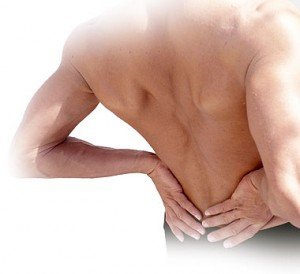A slipped disk, also called a herniated disk is a condition that refers to the weakness of the outer wall of a disk located in the spine. The soft tissue inside the disk applies pressure against the weakened outer wall, thus causing a bulge to form in the disk’s side. The bulge is more visible when the spine’s disk is put under stress by twisting the spine or lifting an object. The bulge may also apply pressure on the spine’s nerves. Most slipped disk conditions occur in the lower back (about 90%); however, it may occur in the neck too.
People with slipped disk may experience symptoms depending on what location has been affected on the spine. People commonly experience symptoms such as back pain that often radiates down towards the leg, causing leg pain, numbness and weakness of the foot, which results in difficulty walking.
Herniated disk in the neck may cause neck pain that radiates towards both arms. Additionally, people may also suffer from pain in the arm, numbness of the arm and hand and weakness of the arm and hand, disallowing movement and work.
If you report your condition to the hospital, the doctor will most likely recommend plenty of rest, physical therapy, adequate stretching exercises, pain medication and muscle relaxants. For surgery, corticosteroids may be required.
Disclaimer: this post on slipped disk is for learning purposes only. If you want to learn to recognize and manage slipped disc injuries enrol in workplace approved first aid classes.
Causes
Underlying causes of slipped disk include:
- Arthritis
- Infection – Osteomyelitis of the spine
- Improper lifting of heavy objects
- Injury to the spine – compression fracture
- Osteoporosis
- Sports injury
- Stress and overwork
Signs and symptoms
Signs and symptoms of slipped disk include:
- Back pain or lower back pain
- Chronic back pain
- Stiffness of the back
- Pain in the hip
- Leg pain – cramps in one or both legs
- Numbness of the foot
- Weakness of the foot
- Foot pain
- Unilateral numbness of the leg
- Unilateral weakness of the leg
- Difficulty walking
- Inability to walk
- Loss of bladder control or urinary incontinence
- Stool incontinence
- Flank tenderness
Signs and symptoms of a sipped disk in the neck include:
- Neck pain
- Unilateral arm pain
- Unilateral arm numbness
- Unilateral tingling of the hand
- Unilateral arm weakness
- Unilateral tingling of the arm
- Unilateral hand numbness
- Unilateral weakness of the hand
Treatment
1. Ease pain
- Shift to a position that is comfortable to you
- Apply a cold compress on the area of discomfort for several times a day for 20 minutes maximum
- Take nonsteroidal anti-inflammatory medication
2. Get plenty of rest
- Lie down flat for 1-2 days
- Avoid stressful activities such as pushing, twisting or lifting
3. See a health care provider as soon as possible
- The doctor will most likely recommend anti-inflammatory medication, muscle relaxants, pain relieving injections and physical therapy to reduce symptoms
- People often feel better within 6 weeks after treatment
- For complicated injuries, back surgery may be needed to repair the damage
Learn More
To learn more about skeletal injuries enrol in workplace approved first aid and CPR training with a provider near you. More information
Related Video
http://www.youtube.com/watch?v=s9uAArDJKKM

